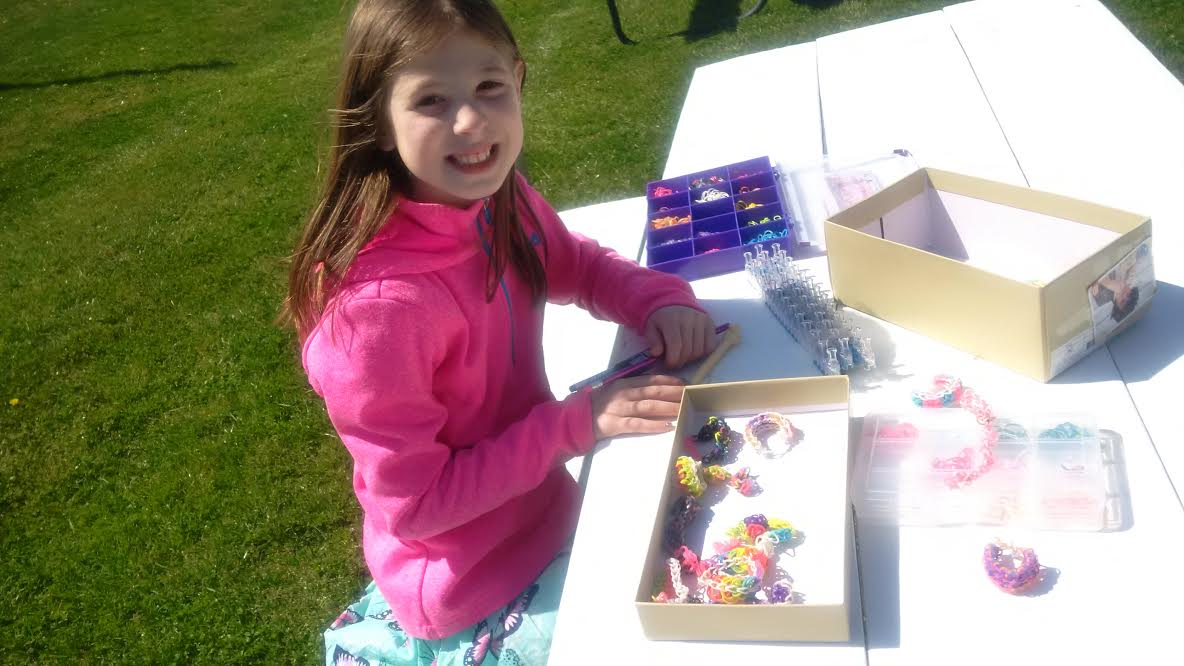Reading: It's Not Always Fun-damental

Parents and teachers work hard to instill a love of reading in young people. In fact, most consider that the love of reading is absolutely essential to a happy, successful, and fulfilling life. They are on an endless pursuit to find ways to cultivate readers or ignite a love of reading. But what about individuals who prefer not to get their information that way?
There is little tolerance for those who choose not to read. Some are labeled as "struggling" or “reluctant” by well-meaning adults who try to come up with ways to provide help and support to fix the problem. Others may be what some define as aliterate: able to read but uninterested in doing so. There are also young people that are just not interested in reading “yet” or they may not be developmentally ready. In fact there is research and experts such as Alfie Kohn who suggest that all this coercion to try to get young people to read may be backfiring and contributing to both our illiteracy problem as well as creating non-readers.
This young rubber band jewelry maker shared with me how she
learns and refines her craft by watching YouTube videos.

Professional writer and filmmaker Peter Kowalke may have never enjoyed the success he had in his reading and writing-dependent career had he been forced to read early. He didn't start reading until he was 11 which wasn't a problem for him because he didn't go to school. He explained that school is a place where you read about doing things. He preferred spending his early childhood actually doing the things which other youngsters were just reading about.
In fact most of the kids I speak to these days tell me that their favorite way to learn is by watching YouTube videos and they are frustrated that in school they are often blocked from such opportunities. Instead, a boring textbook is served up and they’re asked to answer questions about what they read and turn that in to only later be placed in a trash can with all the other “one-right-answer only” papers.
Many of today’s college-age students are like Dave Goodman who attends graduate school and learns best from viewing video lectures from experts on topics of interest. Now he’s placing those videos in Google Spaces where he can have lively conversations with others interested in these topics. We know there are many people who prefer this way to receive information, yet they know that traditionally-minded adults often look down upon this form of information acquisition.
These lovers of video and oral expression signal a crisis in the mind of experts like Jim Trelease, author of The Read-Aloud Handbook. He has stated that this trend away from the written word is more than worrisome, and that it's tearing apart culture. People who have stopped reading, he says, "base their future decisions on what they used to know...If you don't read much, you really don't know much...you're dangerous." Source http://www.cedu.niu.edu
Despite the preconceptions experts and others apply to the reading adverse, these individuals are not less of a person, or even less smart. Not only can a smart person dislike reading, an illiterate person (Charlemagne, Sojourner Truth, Genghis Khan, and even this teacher who couldn’t read) can also be a smart person.
Tools and ideas to transform education. Sign up below.
I wonder what Trelease would say to Socrates if he were alive today. Socrates felt that the written word was the enemy of memory. He believed only oral discourse could convey one’s true intellectual participation in making knowledge. Socrates argument was that the written word cannot defend itself in dialogue, and thus cannot effectively teach anything worth knowing. For only through banter, through back-and-forth discussion and rhetorical argument and the working out of problems, can true knowledge be conveyed. Reading mere words, in his mind, is akin to looking at a lake rather than swimming in it — or worse, looking at a lake and thinking that now you know how to swim. Source http://wondermark.com/socrates-vs-writing
Would Socrates feel the same way today? With the advent of social media, the written word can indeed defend itself. We are are commenting on friend’s posts, articles, news stories, videos and more. Yet this type of reading and writing receive little attention or perceived value in an academic setting.
I have spoken to teachers heartbroken and frustrated at the lack of value and respect there is for students who love learning and working in non text-based fields. They would be happy pursuing careers working on cars, building, plumbing, cosmetology, landscaping, farming, electrical work, animal training, etc. Today, these skills seem to be less acceptable. Every child, ready or not, like it or not, must be college bound. This not only can hurt a perfectly capable, but not academically minded, individual, it also waters down the college experience and value of the degree.
This judgement we make about those who prefer not to read could be the result of our one-size-fits-all common curriculum where we no longer value the people or professions practiced by many of our parents and even peers. My grandfather was a mail carrier and the two fathers who raised me had careers as a sound engineer, director of photography, and many of my uncles were stagehands. None went to college. Many didn’t graduate high school. They didn’t learn and refine their craft by reading about it. They learned by doing, via training programs, serving as a young apprentice, then they moved their way up. My friend Greg who is an accomplished fireman, landscaper, and water authority employee shares this insight: “You don’t have to be book smart to be field smart.”
While you might not find any of these guys spending their time off reading a book, what they spend their time doing is not any less productive. It is not uncommon to hear them telling stories, sharing jokes, debating politics, or discussing their craft.
Socrates would be proud.
What are we doing to so many young people today? These are people very much like those who once were the backbone of our society. People who might be skilled and respected for their interests and their work in a craft. People who can read, but choose to spend their time outdoors, doing, making, building, or debating, and learning from YouTube videos or lectures. While the rest of us are reading about roses, they’re the ones planting them. While we’re focused on the text of the world, they are seeing the world through a whole different, and equally valuable, lens.
The next time you come across a student who doesn’t want to read, you might stop and think -- what it is they want to do? -- and consider the value in that.
HT to my PLN who helped me think about this topic more deeply. You can check out and join that conversation here.
Lisa Nielsen writes for and speaks to audiences across the globe about learning innovatively and is frequently covered by local and national media for her views on “Passion (not data) Driven Learning,” "Thinking Outside the Ban" to harness the power of technology for learning, and using the power of social media to provide a voice to educators and students. Ms. Nielsen has worked for more than a decade in various capacities to support learning in real and innovative ways that will prepare students for success. In addition to her award-winning blog, The Innovative Educator, Ms. Nielsen’s writing is featured in places such as Huffington Post, Tech & Learning, ISTE Connects, ASCD Wholechild, MindShift, Leading & Learning, The Unplugged Mom, and is the author the book Teaching Generation Text. Disclaimer: The information shared here is strictly that of the author and does not reflect the opinions or endorsement of her employer.
Lisa Nielsen (@InnovativeEdu) has worked as a public-school educator and administrator since 1997. She is a prolific writer best known for her award-winning blog, The Innovative Educator. Nielsen is the author of several books and her writing has been featured in media outlets such as The New York Times, The Wall Street Journal, and Tech & Learning.
Disclaimer: The information shared here is strictly that of the author and does not reflect the opinions or endorsement of her employer.
